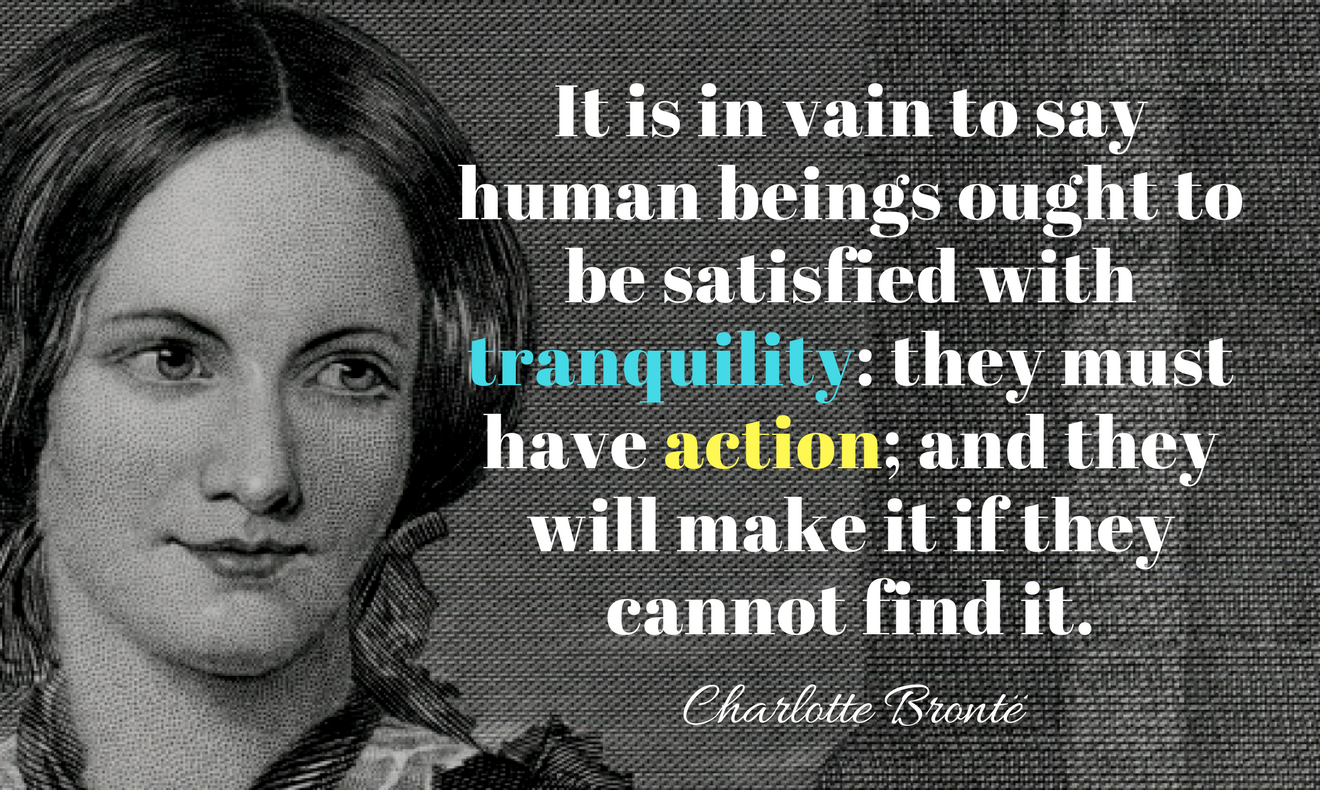We must try to keep the mind in tranquility. For just as the eye which constantly shifts its gaze, now turning to the right or to the left, now incessantly peering up and down, cannot see distinctly what lies before it, but the sight must be fixed firmly on the object in view if one would make his vision of it clear, so too man’s mind when distracted by his countless worldly cares cannot focus itself distinctly on the truth.
Basil of Caesarea (AD 330-378) Christian bishop, theologian, monasticist, Doctor of the Church [Saint Basil the Great, Ἅγιος Βασίλειος ὁ Μέγας]
Letter to Gregory of Nazianzus (c. AD 358) [tr. Defarrari (1926)]
(Source)
Quotations about:
tranquility
Note not all quotations have been tagged, so Search may find additional quotes on this topic.
A good conscience is to the Soul what health is to the body; it preserves constant ease and serenity within us; and more than countervails all the calamities and afflictions which can befall us from without.
Joseph Addison (1672-1719) English essayist, poet, statesman
The Guardian, #135 (15 Aug 1713)
(Source)
He who without necessity embarks
In many matters, is a fool for slighting
The obvious blessings of a tranquil life.[ὅστις δὲ πράσσει πολλὰ µὴ πράσσειν παρόν,
µῶρος, παρὸν ζῆν ἡδέως ἀπράγµονα.]Euripides (485?-406? BC) Greek tragic dramatist
Antiope [Αντιοπη], frag. 193 (TGF, Kannicht) [Amphion] (c. 410 BC) [tr. Wodhall (1809)]
(Source)
Barnes fragment 104, Musgrave 25. (Source (Greek)). Alternate translation:
Whoever is very active when he may be inactive, is a moron,
when he may live pleasantly keeping clear from politics.
[tr. Will (2015)]
Whoever is overactive when he could relax
is foolish, for he misses out on a pleasant life.
[Source]
Nothing contributes so much to tranquilize the mind as a steady purpose, — a point on which the soul may fix its intellectual eye.
Mary Wollstonecraft (1759-1797) English social philosopher, feminist, writer
Frankenstein, Letter 1 (1818)
(Source)
More discussion of the history of this quotation: Nothing Contributes So Much To Tranquillize the Mind As a Steady Purpose,—a Point On Which the Soul May Fix Its Intellectual Eye – Quote Investigator
I feel my heart glow with an enthusiasm which elevates me to heaven, for nothing contributes so much to tranquillize the mind as a steady purpose — a point on which the soul may fix its intellectual eye.
What man actually needs is not a tensionless state but rather the striving and struggling for a worthwhile goal, a freely chosen task.
Viktor Frankl (1905-1997) German-American psychologist, writer
Man’s Search for Meaning, Part 2 (1946)
(Source)
It is in vain to say human beings ought to be satisfied with tranquility: they must have action; and they will make it if they cannot find it.
Charlotte Brontë (1816-1855) British novelist [pseud. Currer Bell]
Jane Eyre, ch. 12 [Jane] (1847)
(Source)
The staircase that leads to God. What does it matter if it is make-believe, if we really climb it? What difference does it make who builds it, or if it is made of marble or word, of brick, stone, or mud? The essential thing is that it be solid and that in climbing it we feel the peace that is inaccessible to those who do not climb it.
The first rule is, to keep an untroubled spirit; for all things must bow to Nature’s law, and soon enough you must vanish into nothingness, like Hadrian and Augustus. The second is to look things in the face and know them for what they are, remembering that it is your duty to be a good man. Do without flinching what man’s nature demands; say what seems to you most just — though with courtesy, modesty, and sincerity.
[Τὸ πρῶτον μὴ ταράσσου: πάντα γὰρ κατὰ τὴν τοῦ ὅλου φύσιν καὶ ὀλίγου χρόνου οὐδεὶς οὐδαμοῦ ἔσῃ, ὥσπερ οὐδὲ Ἁδριανὸς οὐδὲ Αὔγουστος. ἔπειτα ἀτενίσας εἰς τὸ πρᾶγμα ἴδε αὐτὸ καὶ συμμνημονεύσας ὅτι ἀγαθόν σε ἄνθρωπον εἶναι δεῖ καὶ τί τοῦ ἀνθρώπου ἡ φύσις ἀπαιτεῖ, πρᾶξον τοῦτο ἀμεταστρεπτὶ καὶ εἰπέ, ὡς δικαιότατον φαίνεταί σοι: μόνον εὐμενῶς καὶ αἰδημόνως καὶ ἀνυποκρίτως.]
Marcus Aurelius (AD 121-180) Roman emperor (161-180), Stoic philosopher
Meditations, Book 8, #5 [tr. Staniforth (1964)]
(Source)
This translation was adapted (and significantly shortened) by Norman Vincent Peale in You Can If You Think You Can (1974): "The first rule is to keep an untroubled spirit. The second is to look things in the face and know them for what they are."
Peale's paraphrase significantly changes the meaning (by removing the fatalism and the sense of duty in the face of the actions of great men from the past, and turning it into a general call for calm and clarity). Nonetheless, Peale's version of this translation shows up all over the place, and generally without reference to him.
Original Greek. Alternate translations:
First; let it not trouble thee. For all things both good and evil come to pass according to the nature and general condition of the universe, and within a very little while, all things will be at an end; no man will be remembered: as now of Africanus (for example) and Augustus it is already come to pass. Then secondly; fix thy mind upon the thing itself; look into it, and remembering thyself, that thou art bound nevertheless to be a good man, and what it is that thy nature requireth of thee as thou art a man, be not diverted from what thou art about, and speak that which seemeth unto thee most just: only speak it kindly, modestly, and without hypocrisy.
[tr. Casaubon (1634), #4]
In the first place, keep yourself easy, for all things are governed by the laws and order of Providence: besides, you'll quickly go the way of all flesh, as Augustus, Adrian, and the rest of the emperors have done before you. Farther, examine the matter from top to bottom, and remember, that the top of your business is to be a good man: therefore whatever the dignity of human nature requires of you, set about it presently, without ifs, or ands: and speak always according to your conscience, but let it be done in the terms of good nature and civility.
[tr. Collier (1701)]
This is the chief thing: Be not perturbed, for all things are according to the nature of the universal; and in a little time thou wilt be nobody and nowhere, like Hadrianus and Augustus. In the next place, having fixed thy eyes steadily on thy business, look at it, and at the same time remembering that it is thy duty to be a good man, and what man's nature demands, do that without turning aside; and speak as it seems to thee most just, only let it be with a good disposition and with modesty and without hypocrisy.
[tr. Long (1862)]
In the first place, keep yourself easy, for all things are governed by the universal nature. Besides, you'll quickly go the way of all flesh, as Augustus and Hadrian have done before you. Farther, examine the matter from top to bottom, and remember that your business is to be a good man. Therefore, whatever the dignity of human nature requires of you, set about it at once, without "ifs" or "ands"; and speak always according to your conscience, but let it be done in the terms of good nature and modesty and sincerity.
[tr. Zimmern (1887)]
In the first place, be not troubled; for all things are according to Universal Nature, and in a little while you will be no one and nowhere, even as Hadrian and Augustus are no more. Next, looking earnestly at the question, perceive its essence, and reminding yourself that your duty is to be a good man, and what it is that man's nature demands, do that without swerving, and speak the thing that appears to you to be most just, provided only that it is with kindness and modesty, and without hypocrisy
. [tr. Farquharson (1944)]
The first step. Don't be anxious. Nature controls it all. And before long you'll be no one, nowhere -- like Hadrian, like Augustus. The second step: Concentrate on what you have to do. Fix your eyes on it. Remind yourself that your task is to be a good human being; remind yourself what nature demands of people. Then do it, without hesitation, and speak the truth as you see it. But with kindness. With humility. Without hypocrisy.
[tr. Hays (2003)]
It is neither wealth nor splendor, but tranquility and occupation, which give happiness.
Thomas Jefferson (1743-1826) American political philosopher, polymath, statesman, US President (1801-09)
Letter to Anna Jefferson Marks (12 Jul 1788)
(Source)
The salutation is "My dear Sister," and is a congratulations for her marrying Hastings Marks. Some copies, and filings of the letter, make it out to "Anna Scott Marks," her birth name was Anna Scott Jefferson.
Peace indeed is both sweet in name and wholesome in reality; but there is all the difference in the world between peace and slavery. Peace is the calmness of freedom, slavery the worst of all evils, to be kept off at a the cost not only of war, but even of life itself.
[Et nomen pacis dulce est et ipsa res salutaris; sed inter pacem et servitutem plurimum interest. Pax est tranquilla libertas, servitus postremum malorum omnium, non modo bello sed morte etiam repellendum.]
Marcus Tullius Cicero (106-43 BC) Roman orator, statesman, philosopher
Philippicae [Philippics], No. 2, ch. 44 / sec. 113 (2.113) (24 October AD 44) [tr. King (1867)]
(Source)
(Source (Latin)). Alternate translations:
The name of peace is sweet, the thing itself is most salutary. But between peace and slavery there is a wide difference. Peace is liberty in tranquillity; slavery is the worst of all evils, -- to be repelled, if need be, not only by war, but even by death. [tr. Yonge (1903)]
And the name of peace is sweet, and the thing itself wholesome, but between peace and servitude the difference is great. Peace is tranquil liberty, servitude the last of all evils, one to be repelled, not only by war but even by death.
[tr. Ker (1926)]
The name of peace is sweet, and the thing itself is beneficial, but there is a great difference between peace and servitude. Peace is freedom in tranquility, servitude is the worst of all evils, to be resisted not only by war, but even by death.













